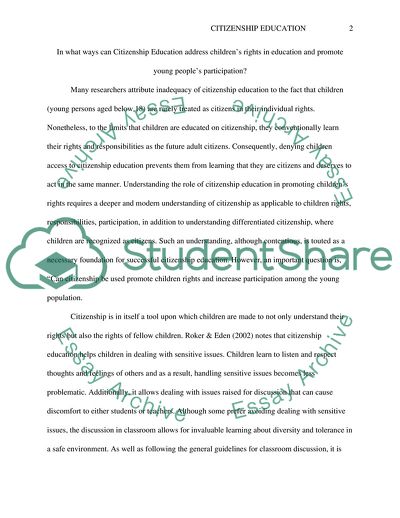Cite this document
(The Citizenship Education Literature review Example | Topics and Well Written Essays - 1500 words, n.d.)
The Citizenship Education Literature review Example | Topics and Well Written Essays - 1500 words. https://studentshare.org/education/1820294-in-what-ways-can-citizenship-education-address-childrens-rights-in-education-and-promote-young-peoples-participation
The Citizenship Education Literature review Example | Topics and Well Written Essays - 1500 words. https://studentshare.org/education/1820294-in-what-ways-can-citizenship-education-address-childrens-rights-in-education-and-promote-young-peoples-participation
(The Citizenship Education Literature Review Example | Topics and Well Written Essays - 1500 Words)
The Citizenship Education Literature Review Example | Topics and Well Written Essays - 1500 Words. https://studentshare.org/education/1820294-in-what-ways-can-citizenship-education-address-childrens-rights-in-education-and-promote-young-peoples-participation.
The Citizenship Education Literature Review Example | Topics and Well Written Essays - 1500 Words. https://studentshare.org/education/1820294-in-what-ways-can-citizenship-education-address-childrens-rights-in-education-and-promote-young-peoples-participation.
“The Citizenship Education Literature Review Example | Topics and Well Written Essays - 1500 Words”. https://studentshare.org/education/1820294-in-what-ways-can-citizenship-education-address-childrens-rights-in-education-and-promote-young-peoples-participation.


